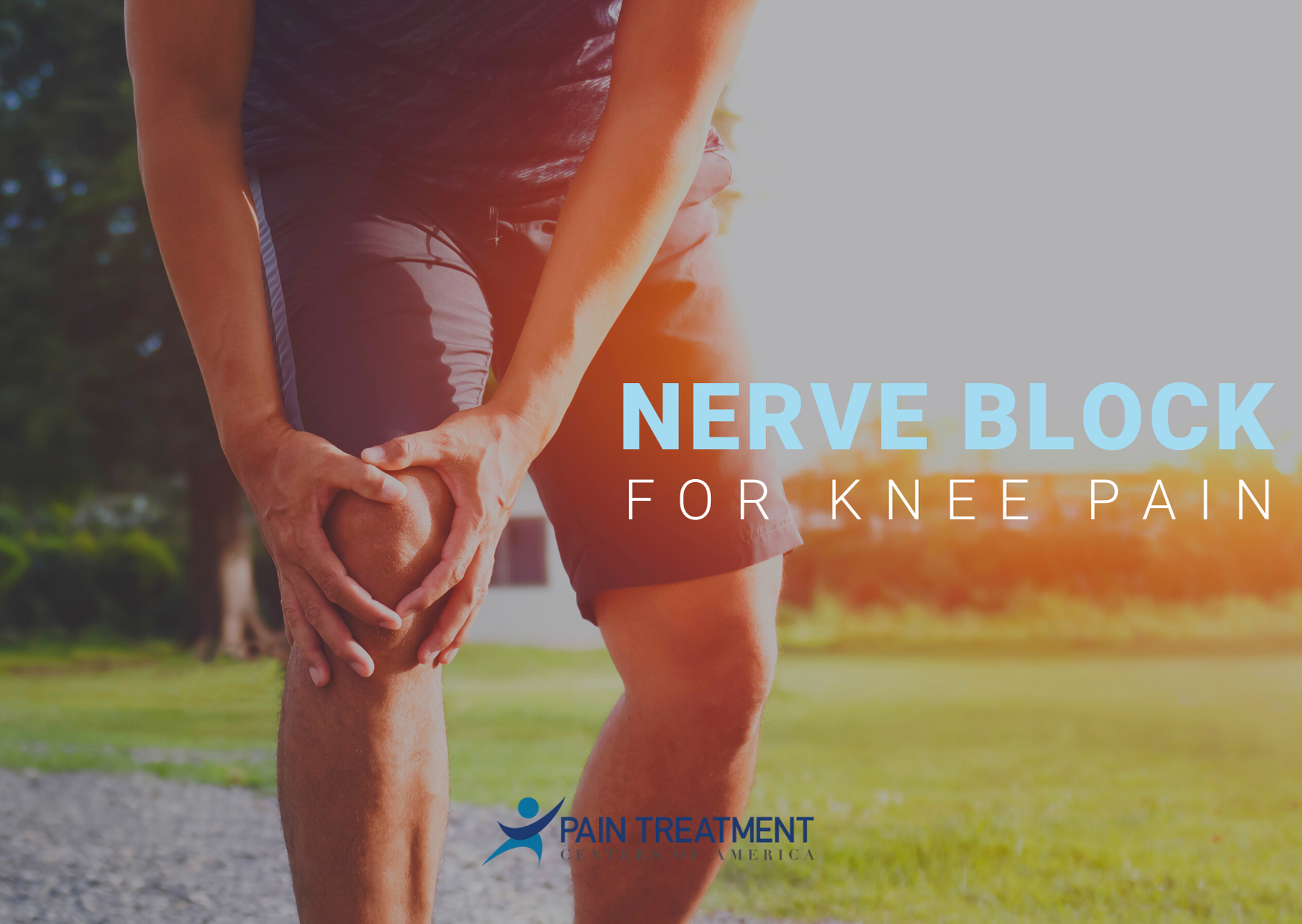
What You Should Know About Nerve Block for Knee Pain
Knee pain severity comes from a variety of factors and can vary from person to person. Anyone can experience the impact this pain has on fitness, work, and lifestyle. A nerve block is a process that prevents pain signals from reaching the knee. Let's take a closer look at genicular nerve block and how it helps manage knee pain.
Knee Pain
Your knee is a major weight-bearing joint. It can undergo tremendous wear and tear throughout your life, and an injury can result in lifelong pain. Age, lifestyle changes, weight loss, and gain, and stiffness can all contribute to knee pain.
Almost a million knee replacement surgeries took place in the United States in 2017.
Here are some of the more common conditions that create severe knee pain:
● Knee ligament injuries
● Meniscus tears
● Knee arthritis
● Chronic knee pain
● Rheumatoid knee arthritis
● Post-traumatic arthritis
● Knee osteoarthritis
Nerve blocking is also an option for patients experiencing pain after knee surgery as well as chronic knee pain sufferers who aren't candidates for surgery.
Genicular Nerve Block
A genicular nerve block stops nerve signals to the knee temporarily. It's a relatively new procedure for knee pain that's not responsive to conventional treatment.
Doctors will carefully diagnose your condition. They'll gauge knee flexibility, pain level, joint function, past conditions or injuries, activity, and family history. The clinician will use physical evaluation and X-rays. To get a handle on specifics related to knee pain, they may conduct any of the following tests.
Bloodwork
Bloodwork checks for anti-CCP antibodies, an indicator of rheumatoid arthritis.
Fluid Tests
Doctors may draw knee joint fluid. If there are signs of uric acid crystals, that could be inflammation and gout. The tests may reveal bacteria as a symptom of infection.
Imaging
Besides X-rays, there may be MRI or CAT scans to get detailed images of soft tissue and bones. The process will also explore unexplained swelling or diagnose the injury.
The Nerve Block Process
There are different nerve block treatments. Doctors base approach to treatment on the pain's location. Besides the knee, doctors apply nerve blocking to the arms, backs, buttocks, legs, face, and neck.
The nerve block process consists of a local anesthetic injection. It's targeted to a nerve or group of nerves to lessen your pain. Depending on the condition, the local anesthetic may come with anti-inflammatory medication. It's applied to encourage healing damaged nerves.
The procedure is usually done on an outpatient basis. You lie on your side or stomach. Most likely on an ultrasound or X-ray table. This gives your doctor easier access to injection points.
If you appear anxious, the doctor may offer a mild IV sedative. Your doctor will prepare this beforehand so that you can set up a ride home post-procedure. You'll also need to fast before the process for at least six to eight hours.
After they've numbed the area with a local anesthetic, the doctor will give the injection. Using video images provided by the fluoroscopy or ultrasound, the doctor can guide the injection to the precise spot. Generally, patients express only mild and momentary discomfort. Afterward, you'll be able to rest.
Potential Side Effects and Risks
Like any medical procedure, we need to consider the potential risks and side effects of nerve block treatment. They include:
● Soreness or bleeding at the injection site
● Unexpected bleeding
● Worsening pain
● Infection
● Drug allergy
● Nerve damage
Depending on the type of nerve block treatment, you may experience any of the following:
● Trouble swallowing
● Hoarseness
● Red or drooping eyes
Anyone expecting to get a nerve block should remember the risks are rare. Your experienced and vetted pain management doctor takes every precaution to minimize any risks associated with genicular nerve blocking.
Length of Pain Relief After a Nerve Block
After treatment, you'll experience immediate pain relief. The duration can last several days or a few weeks. Results vary from one patient to the next. Some patients experience relief from one injection. Others require multiple nerve block treatments.
What to Expect After Treatment
Following treatment, your doctor will request you monitor the pain levels. Relief from pain occurs almost immediately after an injection. This relief should last at the very least a few hours.
If your clinician feels the reaction's good, that treatment resulted in significant pain relief, they may determine you're a candidate for the advanced nerve ablation. That's a process that cauterizes the nerves. A genicular nerve ablation can provide relief from pain for up to 18 months.
Alternative At-Home Treatment
While you can accept treatment for knee pain from your doctor, some at-home treatments may also help to lessen pain.
Weight Loss
The less amount you apply to your knee joints, the greater chance of improving the health of your knee. OARSI, and osteoarthritis foundation, recommend, over a 20-week period, you lose five percent of your weight.
Manage Movement
Performing strengthening exercises will improve your knee's mobility and function. It can relieve stiffness and pain. Aquatic aerobics and yoga can be helpful.
Cold and Heat Therapy
Physical therapy can show you how to use hot and cold therapy to manage stiffness and pain.
Assistive Devices
Where there's limited mobility because of knee arthritis, your occupational or physical therapist may recommend helpful tools. One example is a custom knee brace or walker.
Natural Remedies
Doctors may prescribe supplements or acupuncture for pain. Acupuncture looks to be an effective and helpful option when it comes to arthritis knee pain.
Pain Relievers
Ibuprofen, aspirin, and other nonsteroidal anti-inflammatory medications can help with osteoarthritis knee pain and inflammation. Your doctor can recommend appropriate doses for self-treatment.
Treatment at Pain Treatment Centers of America
If you are suffering from severe knee pain and haven't found any real relief, you should contact us at Pain Treatment Centers of America. We can provide much-needed information about genicular nerve blocks and other treatments that can help with severe knee pain.













